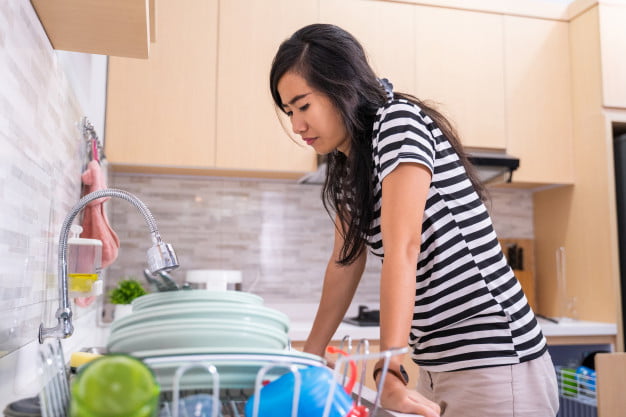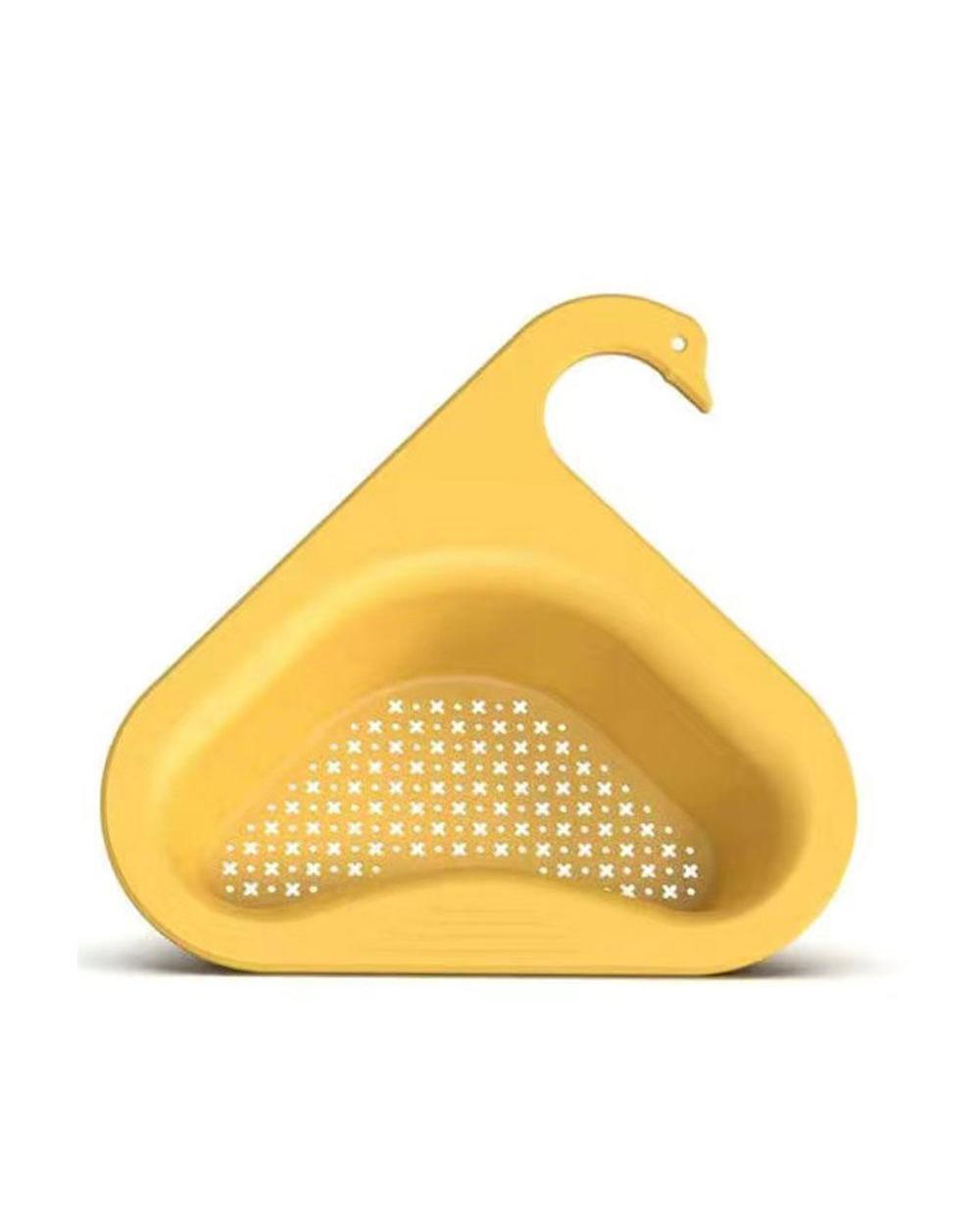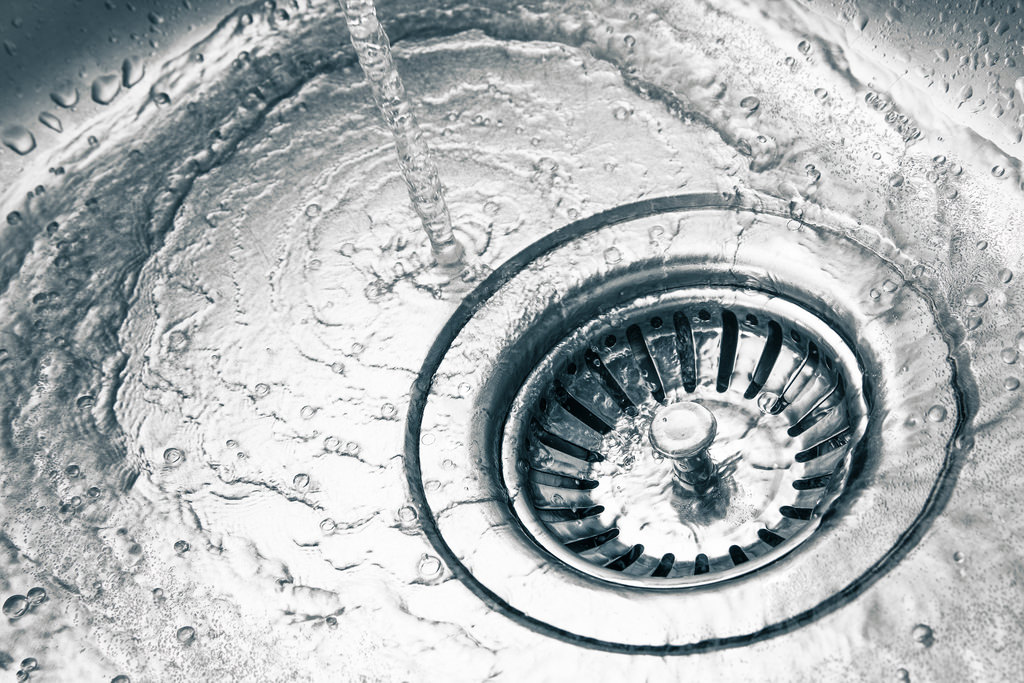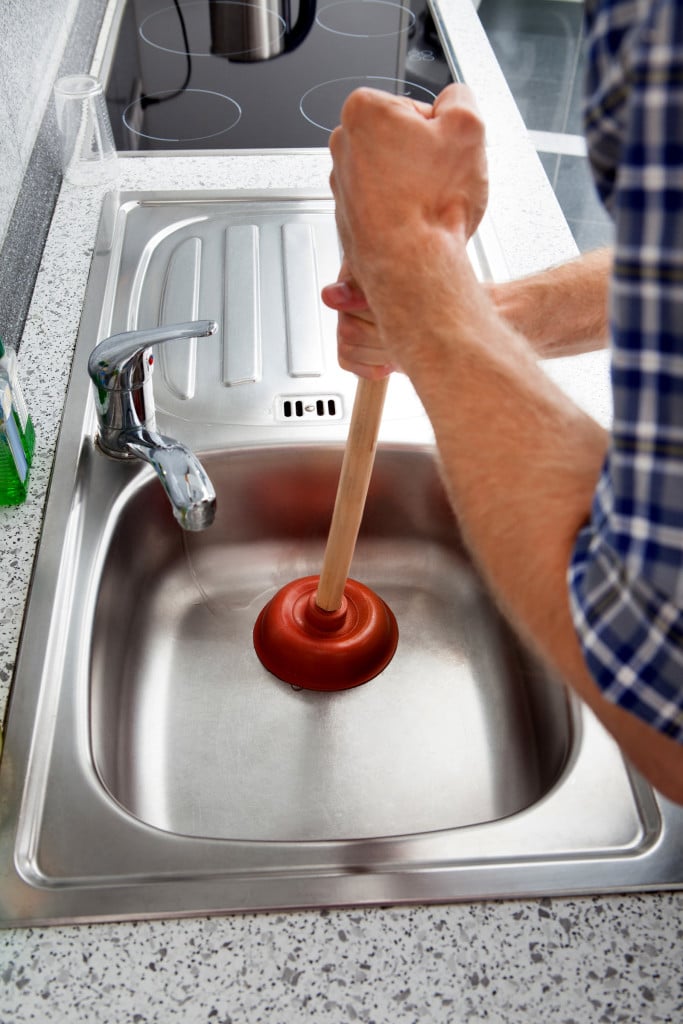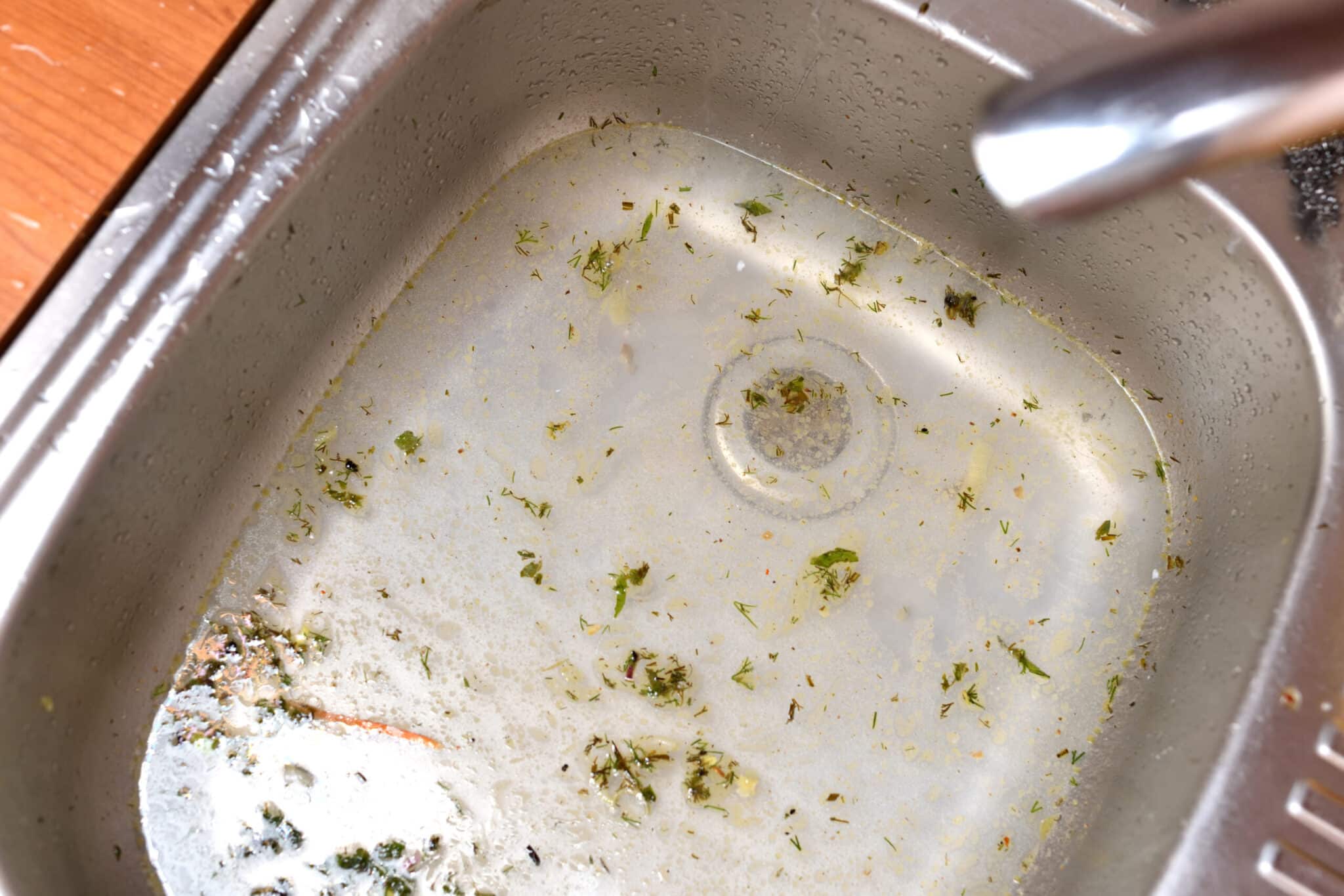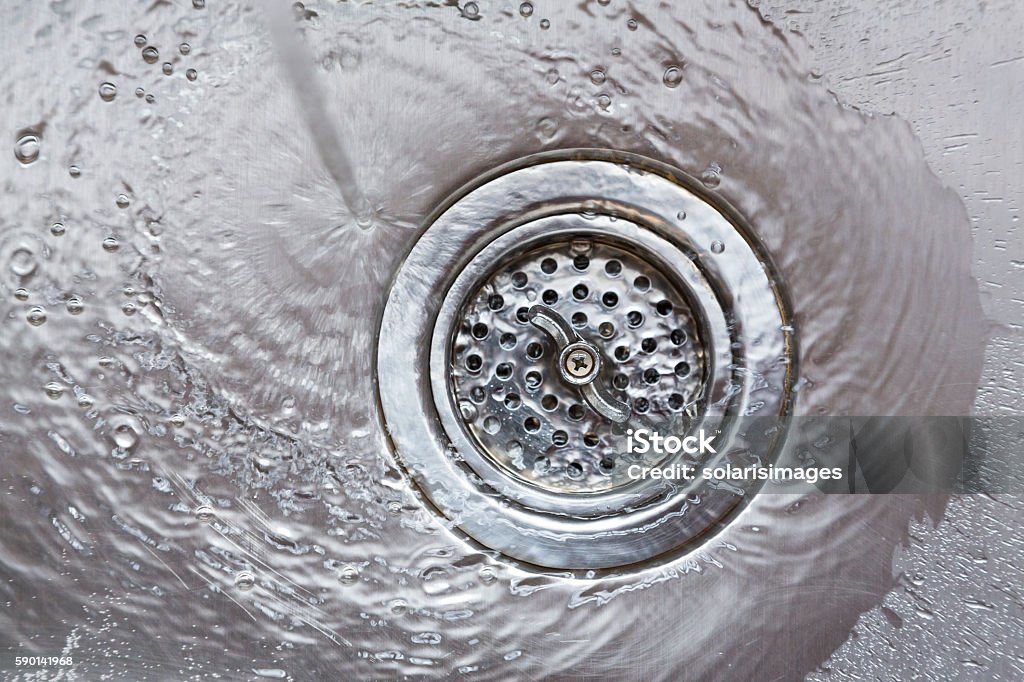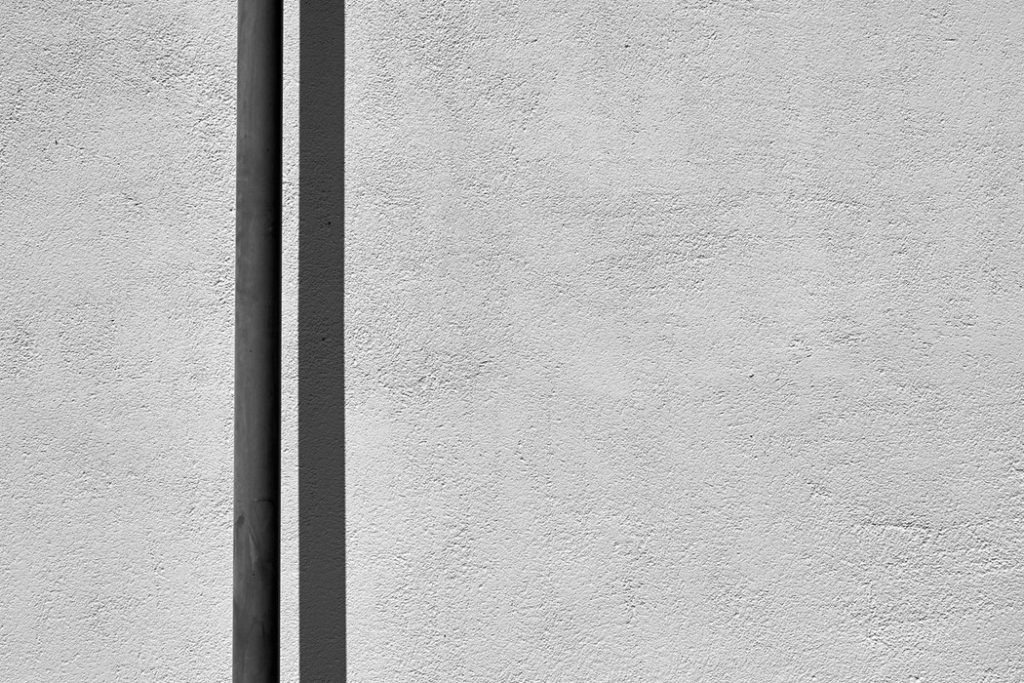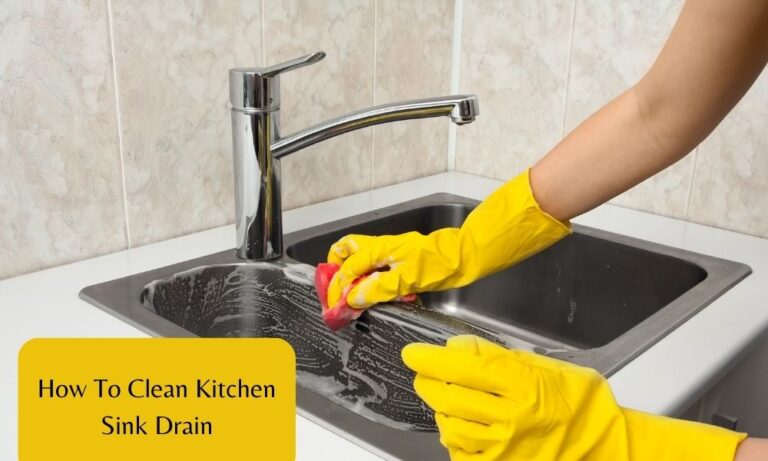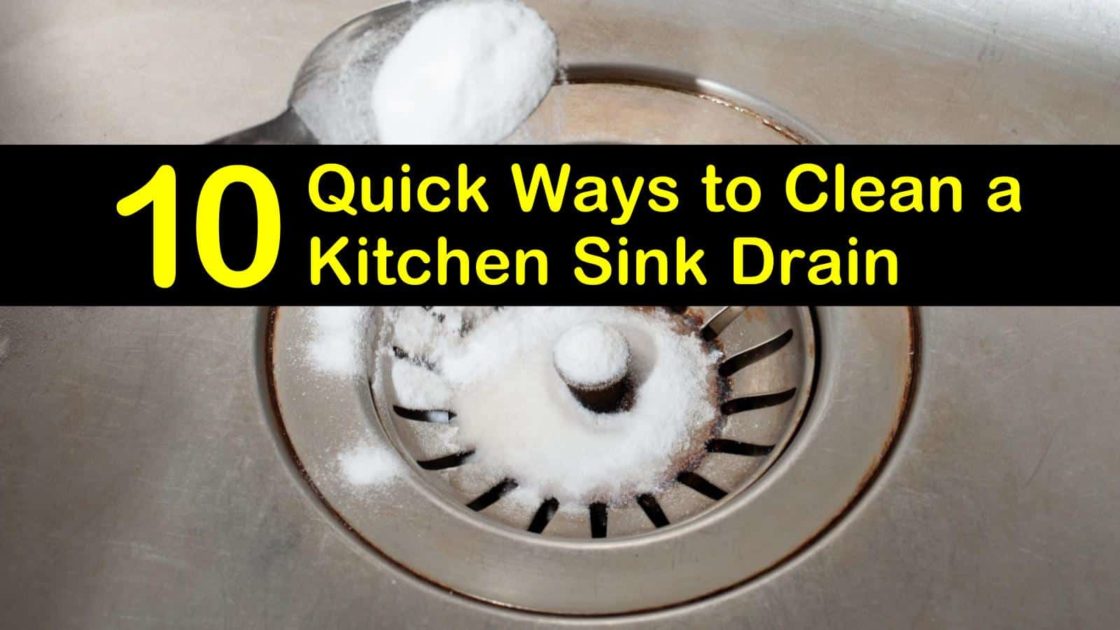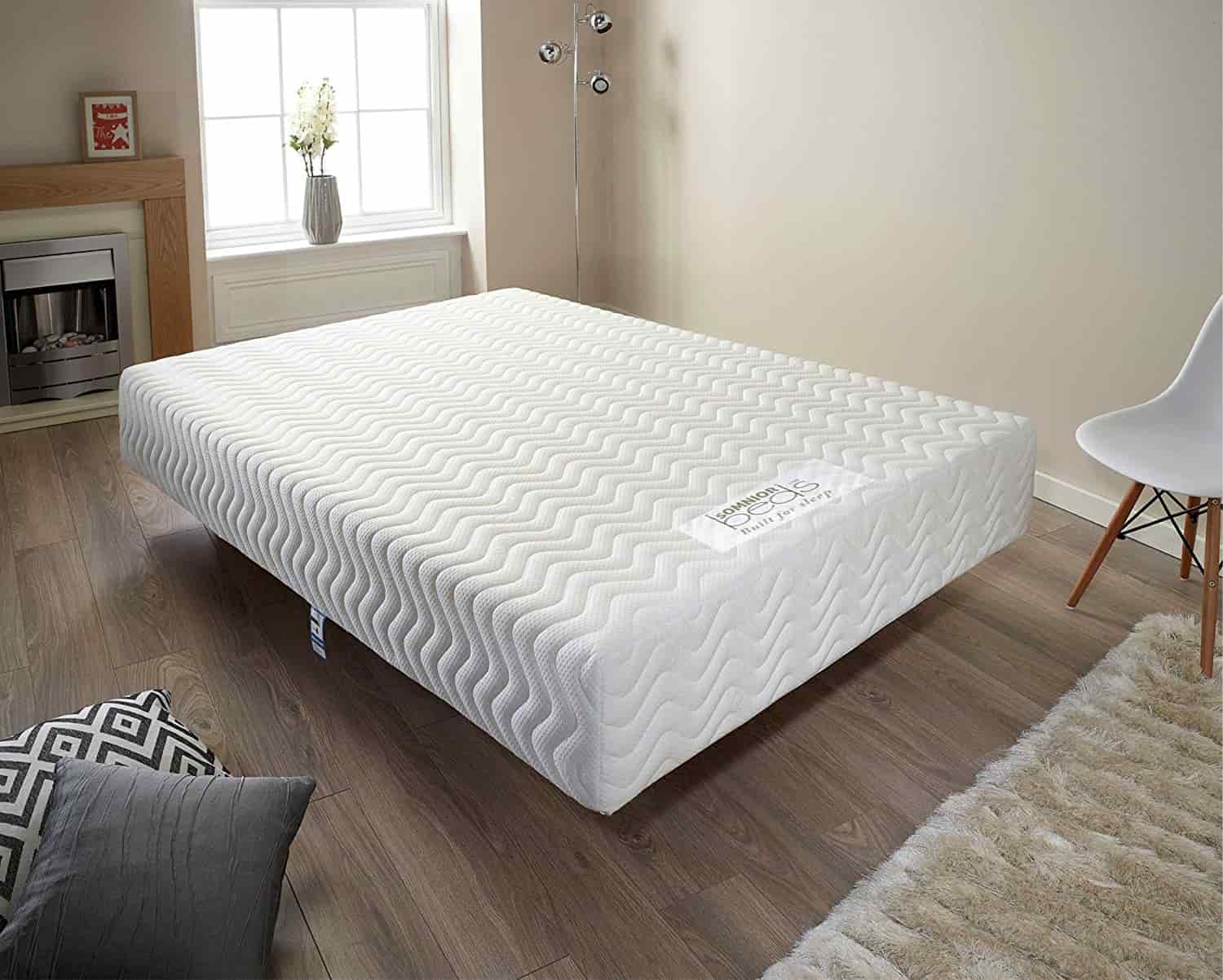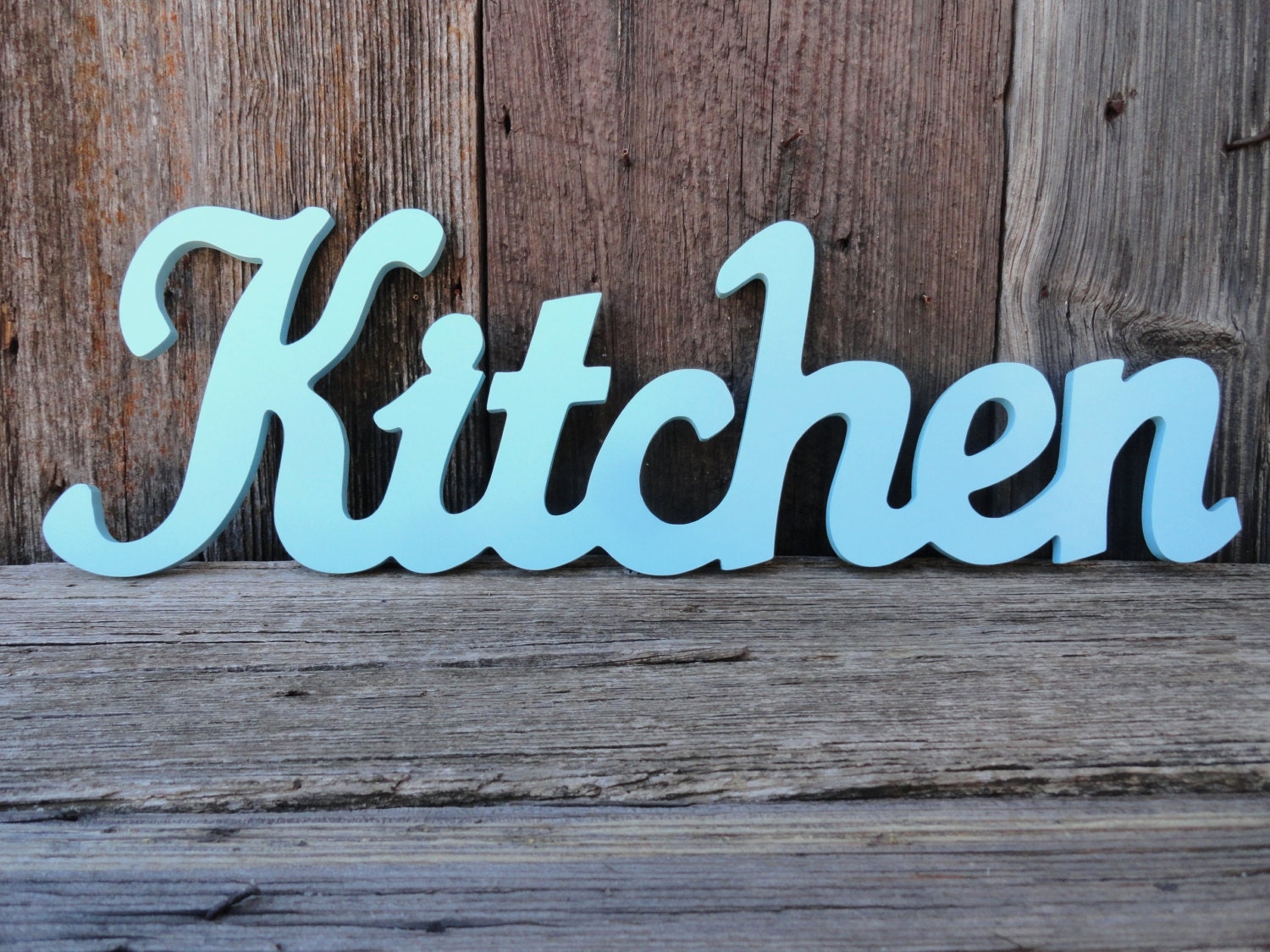If your kitchen sink is draining slowly, it can be frustrating and inconvenient. Not only does it make doing dishes a longer and messier process, but it can also lead to bad odors and potential clogs. But before you call a plumber, there are a few things you can try to unclog your slow running kitchen sink drain. The first step is to try using a plunger. Place the plunger over the drain and push down firmly and quickly, creating a suction. Repeat this a few times, then quickly pull up the plunger. This should help to dislodge any debris or buildup in the drain. If the plunger doesn't work, try using a drain snake. Insert the snake into the drain and twist it as you push it down. This should help to catch onto any clogs and pull them out. You can also try using a homemade solution of baking soda and vinegar. Pour a cup of baking soda down the drain, followed by a cup of vinegar. Let it sit for 15-20 minutes, then pour boiling water down the drain to flush it out.1. Unclogging a Slow Running Kitchen Sink Drain
If your kitchen sink drain is still draining slowly after trying these DIY solutions, it may be time to call a professional. They will have specialized tools and techniques to clear the drain and get it flowing freely again. They may also be able to identify and fix any underlying issues that could be causing the slow drain. If you're feeling handy, you can also try taking apart the drain and cleaning it out yourself. Just be sure to turn off the water supply and have a bucket ready to catch any excess water. Inspect the pipes for any clogs or buildup, and use a pipe brush or vinegar solution to clean them out.2. How to Fix a Slow Draining Kitchen Sink
Understanding the common causes of a slow kitchen sink drain can help prevent it from happening in the future. One of the main causes is food debris and grease buildup. Over time, small food particles and grease can accumulate in the drain and cause clogs. To prevent this, be mindful of what you put down the drain and regularly clean it out with a homemade solution of baking soda and vinegar. Another common cause is a clogged or blocked drain pipe. This can happen if there is a buildup of debris or if tree roots have grown into the pipes. To prevent this, avoid pouring harsh chemicals down the drain and regularly have your pipes inspected and cleaned by a professional.3. Common Causes of a Slow Kitchen Sink Drain
If you prefer a more natural approach to cleaning and unclogging your kitchen sink drain, there are several DIY solutions you can try. As mentioned before, a mixture of baking soda and vinegar is a great option. You can also try using a combination of salt and baking soda, followed by boiling water. Another option is to pour a cup of hydrogen peroxide down the drain and let it sit for 30 minutes before flushing it out with hot water.4. DIY Solutions for a Slow Kitchen Sink Drain
If your DIY efforts are not successful, it's time to call in the professionals. A plumber will have specialized tools and techniques to clear even the toughest clogs in your kitchen sink drain. They may use a hydro jet to blast away any buildup or a video camera to inspect the inside of your pipes and identify any underlying issues. To prevent future clogs, they may recommend regular drain cleaning and maintenance, as well as avoiding putting certain items down the drain, such as coffee grounds, eggshells, and fibrous foods like celery and potato peels.5. Professional Tips for Clearing a Slow Kitchen Sink Drain
If you're experiencing a slow kitchen sink drain, it's important to troubleshoot the issue to determine the best course of action. First, check to see if any other drains in your home are affected. If they are, the issue may be with your main sewer line. If it's just the kitchen sink drain, then there is likely a clog or buildup in the pipes specific to that area. Next, try turning on the faucet and see if the water backs up into the sink. If it does, this is a sign of a clog. You can also try running hot water down the drain for a few minutes to see if it helps to clear any buildup.6. Troubleshooting a Slow Kitchen Sink Drain
The best way to deal with a slow kitchen sink drain is to prevent it from happening in the first place. This means being mindful of what you put down the drain, regularly cleaning and maintaining it, and scheduling professional inspections and cleanings as needed. You can also invest in a mesh drain cover to catch any food debris and prevent it from going down the drain. And if you have a garbage disposal, be sure to run it regularly and avoid putting tough or fibrous foods down the drain.7. Preventing a Slow Kitchen Sink Drain
There are several signs to look out for that indicate a clogged kitchen sink drain. The most obvious one is a slow draining sink. You may also notice a foul odor coming from the drain or standing water in the sink after use. If the clog is severe, you may even experience backups in other drains throughout your home. If you notice any of these signs, it's important to address the issue as soon as possible to prevent further damage and inconvenience.8. Signs of a Clogged Kitchen Sink Drain
Maintaining a fast-flowing kitchen sink drain is essential for keeping your kitchen running smoothly. Some simple steps you can take to maintain your drain include regularly cleaning it with a homemade solution, avoiding putting certain items down the drain, and scheduling professional cleanings and inspections as needed. You can also try using a garbage disposal cleaner regularly to prevent buildup and odors. And be sure to run hot water down the drain after each use to flush out any remaining debris.9. How to Maintain a Fast-Flowing Kitchen Sink Drain
If you're constantly dealing with a slow running kitchen sink drain, it may be time to consider upgrading to a better performing drain. You can opt for a larger or more efficient drain, such as a double sink or a deeper basin, to accommodate larger amounts of water and prevent clogs. You can also invest in a high-quality garbage disposal that can handle tougher foods and prevent clogs. And be sure to have a professional install your new drain to ensure proper and efficient functioning. In conclusion, a slow running kitchen sink drain can be a frustrating and unpleasant issue to deal with. But with the right knowledge and tools, you can easily tackle the problem and prevent it from happening in the future. Whether you opt for DIY solutions or professional assistance, a fast-flowing kitchen sink drain will make your daily tasks much easier and more enjoyable.10. Upgrading Your Kitchen Sink Drain for Better Performance
Common Causes for a Slow Running Kitchen Sink Drain

Build-up of Food and Grease
 One of the most common reasons for a slow running kitchen sink drain is a build-up of food and grease. When we wash dishes or rinse off plates before putting them in the dishwasher, small food particles and grease can easily get washed down the drain. Over time, these particles can accumulate and create a blockage in the drain, causing it to run slower. This can also be exacerbated by pouring hot oil or grease down the drain, as it can solidify and stick to the pipes, making it difficult for water to pass through.
One of the most common reasons for a slow running kitchen sink drain is a build-up of food and grease. When we wash dishes or rinse off plates before putting them in the dishwasher, small food particles and grease can easily get washed down the drain. Over time, these particles can accumulate and create a blockage in the drain, causing it to run slower. This can also be exacerbated by pouring hot oil or grease down the drain, as it can solidify and stick to the pipes, making it difficult for water to pass through.
Foreign Objects
 Another possible cause for a slow running kitchen sink drain is the presence of foreign objects in the pipes. This can include anything from small kitchen utensils accidentally falling into the sink, to children's toys or debris from outside entering the pipes through vents or cracks. These objects can obstruct the flow of water and cause it to back up, resulting in a slow draining sink.
Another possible cause for a slow running kitchen sink drain is the presence of foreign objects in the pipes. This can include anything from small kitchen utensils accidentally falling into the sink, to children's toys or debris from outside entering the pipes through vents or cracks. These objects can obstruct the flow of water and cause it to back up, resulting in a slow draining sink.
Old or Damaged Pipes
 If your kitchen sink is running slow and you have ruled out food and foreign objects as the cause, it could be an issue with your pipes. Over time, pipes can become corroded or damaged, leading to blockages and slow draining water. This is especially common in older houses, where pipes may have been installed decades ago and have not been updated. If you suspect this may be the cause of your slow running sink, it is important to have a professional plumber inspect and potentially replace any damaged pipes.
If your kitchen sink is running slow and you have ruled out food and foreign objects as the cause, it could be an issue with your pipes. Over time, pipes can become corroded or damaged, leading to blockages and slow draining water. This is especially common in older houses, where pipes may have been installed decades ago and have not been updated. If you suspect this may be the cause of your slow running sink, it is important to have a professional plumber inspect and potentially replace any damaged pipes.
Improperly Installed P-Trap
 The P-trap is a curved pipe located underneath the sink that is designed to trap water and prevent sewer gases from entering your home. However, if the P-trap is not installed correctly, it can cause water to collect and create a blockage, resulting in a slow draining sink. This can happen if the trap is not aligned properly or if the pipes are not secured tightly. If you have recently had any plumbing work done in your kitchen, it is possible that the P-trap was not installed correctly and is causing your sink to run slow.
In conclusion, a slow running kitchen sink drain can be caused by a variety of factors, from simple food and grease build-up to more serious issues with your pipes. If you are experiencing this problem, it is important to address it as soon as possible to avoid further damage and inconvenience. By properly identifying the cause of the issue, you can take the necessary steps to fix it and restore your sink to proper working order.
The P-trap is a curved pipe located underneath the sink that is designed to trap water and prevent sewer gases from entering your home. However, if the P-trap is not installed correctly, it can cause water to collect and create a blockage, resulting in a slow draining sink. This can happen if the trap is not aligned properly or if the pipes are not secured tightly. If you have recently had any plumbing work done in your kitchen, it is possible that the P-trap was not installed correctly and is causing your sink to run slow.
In conclusion, a slow running kitchen sink drain can be caused by a variety of factors, from simple food and grease build-up to more serious issues with your pipes. If you are experiencing this problem, it is important to address it as soon as possible to avoid further damage and inconvenience. By properly identifying the cause of the issue, you can take the necessary steps to fix it and restore your sink to proper working order.






:max_bytes(150000):strip_icc()/freshen-and-unclog-drain-with-baking-soda-1900466-22-bbf940b70afa4d5abef0c54da23b1d3f.jpg)








:max_bytes(150000):strip_icc()/Five-Ways-to-Fix-a-Slow-Sink-Drain-03-24c1f6dd477d46b9b5d1f70952a76933.jpg)

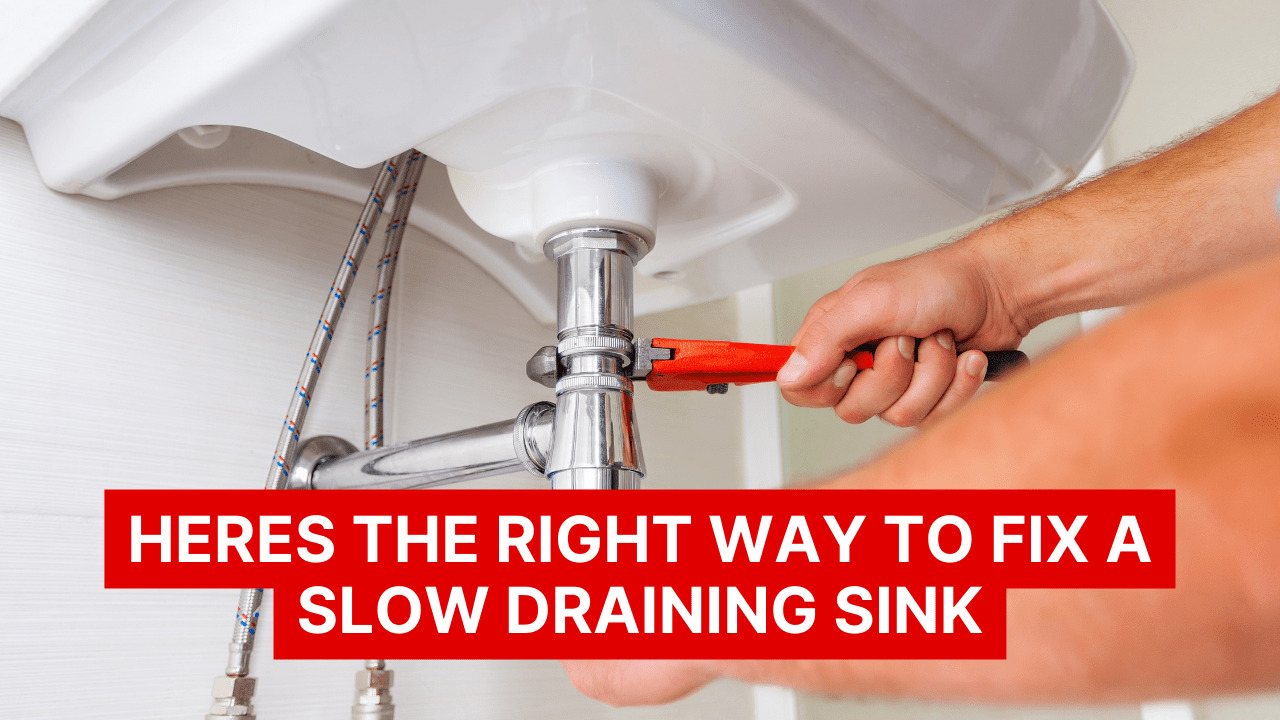








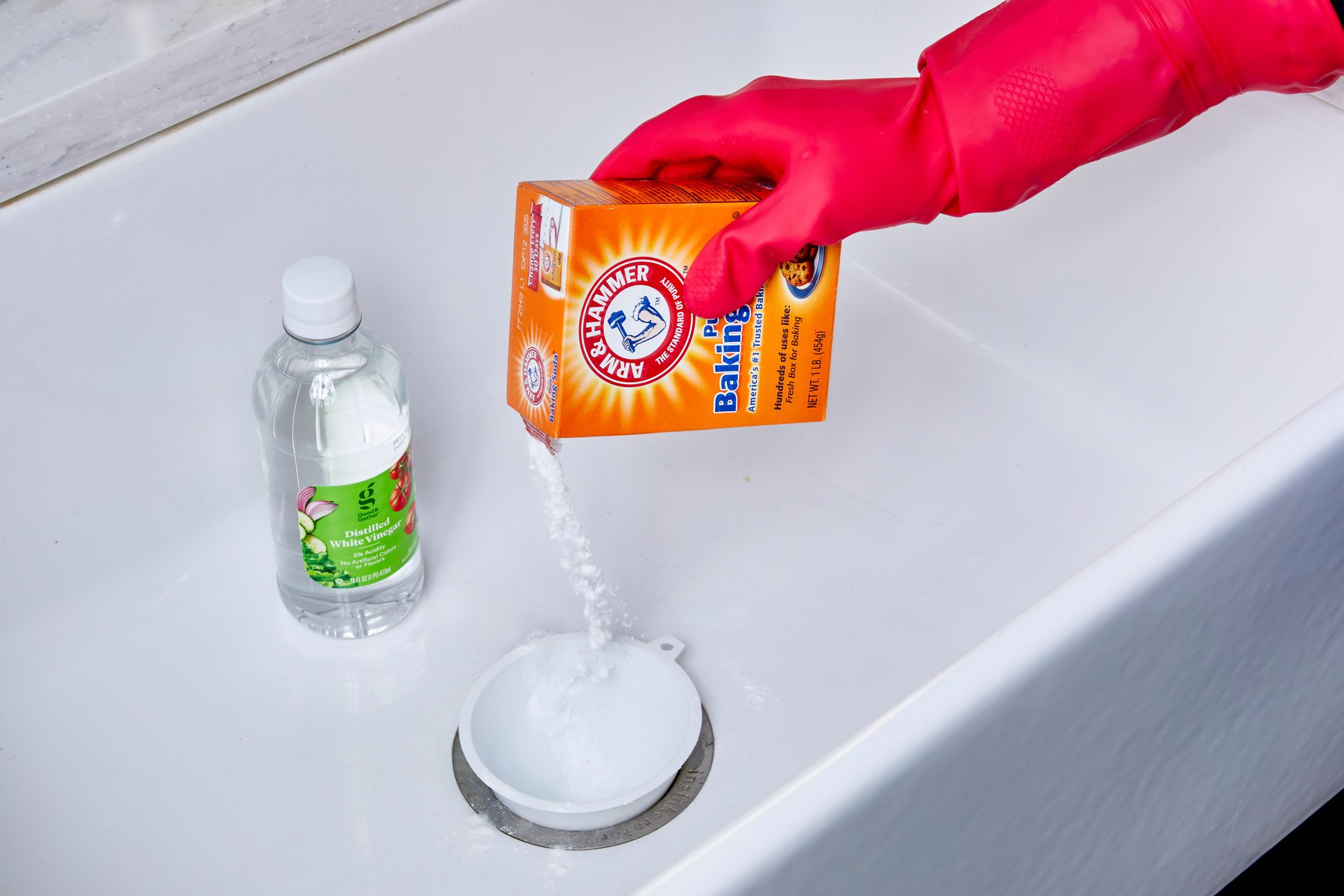




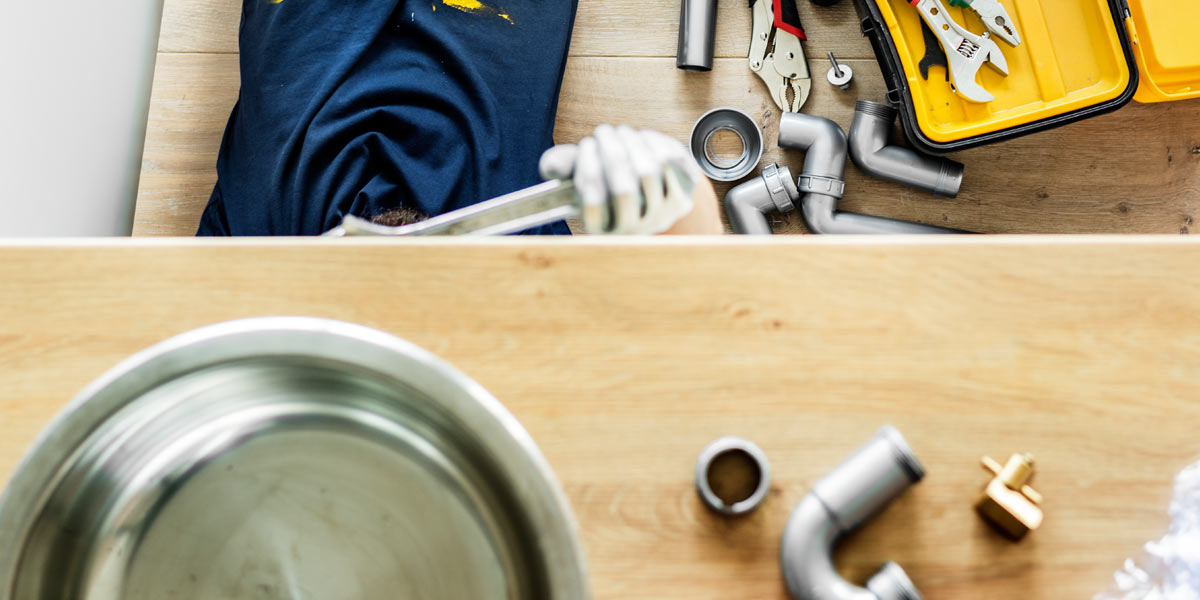

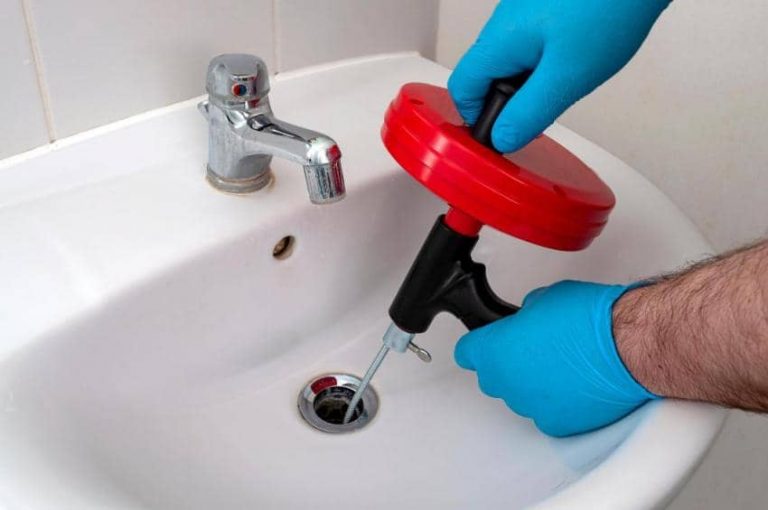


/close-up-of-overflowing-bathroom-sink-90201417-579787783df78ceb865822d8-5c30d5dac9e77c0001149e8f.jpg)




